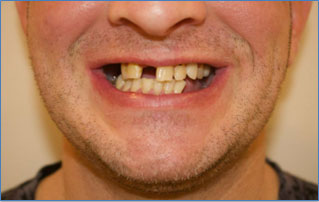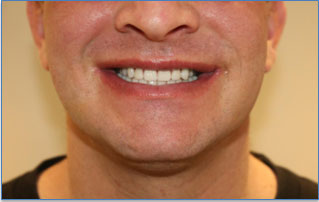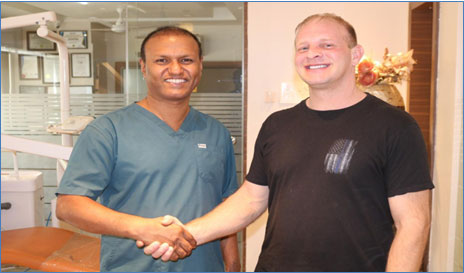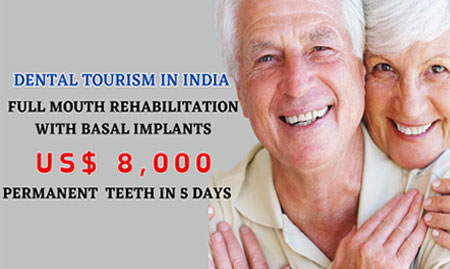
Dr. K Sharada Reddy, Author
Senior Dentist & Full Mouth Rehabilitation Expert
Introduction
Basal implants initially gained popularity in India as a quick and efficient alternative to conventional dental implants in India. At the time, conventional implants required additional surgeries and several months of healing before securing teeth, making basal implants an attractive option for immediate teeth replacement without bone grafting.
The only real advantage of basal implants is their ability to support immediate loading of teeth without additional surgical procedures. However, is this single benefit enough to make them the preferred choice for full-mouth rehabilitation? What if conventional implants, universally accepted in developed countries like the US, UK, Australia, and New Zealand, could offer the same immediate loading benefits while retaining their well-established advantages?
Before deciding on the type of implant system for a secure, long-lasting solution, it is essential to understand the potential drawbacks and long-term risks associated with basal implants. In this comprehensive guide, we will explore these limitations, helping you make an informed decision when choosing a dental implant hospital in India and selecting the best treatment option for your needs.
What Are Basal Implants?
Basal implants are single-piece, monolithic implants that are designed to anchor into the basal (cortical) bone rather than the alveolar bone which holds the tooth roots. Basal implants, also known as cortical implants, differ from conventional implants, which rely on OsseoIntegration (fusion with the jawbone), Instead, basal implants depend on mechanical stability and are often recommended for patients with severe bone resorption who are not candidates for traditional implants without bone grafting.
While they may seem like an attractive option, basal implants come with several significant disadvantages that every patient should be aware of.
Major Disadvantages of Basal Implants
1. Lack of True OsseoIntegration
One of the biggest advantages of Conventional dental implant is their ability to integrate with the jawbone through a process called OsseoIntegration, ensuring long-term stability and durability.
Basal implants, however, do not OsseoIntegrate in the same way. Instead, they rely on mechanical engagement with the cortical bone. Over time, this lack of true biological integration may lead to implant failure or instability.
2. Basal implants support cement retained prosthesis.
One of the significant drawbacks of basal implants is that the prosthesis must be cemented onto the implants rather than being screw-retained. This means that the bridge, whether made of porcelain-fused-to-metal (PFM) or Zirconia, is permanently bonded to the implants using dental cement. While this method ensures a firm attachment, it poses challenges if the prosthesis ever needs to be removed or replaced.
Over time, prosthetic components are subject to wear and tear. An over denture, for example, typically lasts around 4 to 5 years before requiring replacement. Even a zirconia bridge, known for its strength and durability, can occasionally develop chips or cracks due to accidental trauma. If such issues arise, repairing or replacing the prosthesis becomes complicated because a cemented bridge cannot be easily detached from the implants. Since basal implants osseofix (mechanical bonding and do not fuse with the bone as in Conventional implants) with the bone, any attempt to remove the bridge is not only difficult but also risks damaging the bridge and displacing the implants beyond repair. Consequently, the patient must invest in the displaced implants and a completely new prosthesis, which can be both time-consuming and expensive.
Another concern with cement-retained prostheses is the potential for excess dental cement to seep into the surrounding gum tissue during the fixation process. If not properly removed, this residual cement can lead to inflammation of the gums, known as peri-implantitis, which may eventually result in bone loss around the implants. This can compromise both the health of the implant and the overall longevity of the prosthetic solution.
For these reasons, many experts prefer screw-retained prostheses, as they allow for easier retrieval, maintenance, and adjustments without the complications associated with cemented restorations.
3. Basal Implants Are Not US FDA Approved
One major concern with basal implants is that they are not approved by the US FDA. This raises questions about their safety, effectiveness, and long-term viability. Choosing implants that are not FDA-approved can come with significant risks, including:
- Lack of standardization and quality control
- Higher risk of complications due to insufficient clinical trials
- Limited options for legal recourse if issues arise
Patients should always opt for FDA-approved implants that have been extensively tested and backed by strong clinical research.
4. Higher Risk of Long-Term Bone Loss
Since basal implants do not encourage natural bone remodeling and integration, they can lead to progressive bone loss over time. This can result in:
- A weaker foundation for the implant
- Increased chances of implant loosening or failure
- Difficulty in future implant replacement
5. Increased Failure Rates
While proponents of basal implants claim high success rates, real-world experiences suggest otherwise. Patients with basal implants often experience:
- Implant loosening due to inadequate bone adaptation
- Difficulty in long-term maintenance
- Higher chances of infection or rejection
Compared to conventional implants, which have a success rate of over 95%, basal implants show a higher failure rate over extended periods.
6. Limited Long-Term Research and Scientific Support
Conventional best teeth implants price in India have been extensively researched for decades, with clear long-term success rates and predictable outcomes. In contrast, basal implants lack sufficient long-term studies, making their reliability questionable.
7. Complicated Repair and Replacement Process
If a basal implant fails, the repair process is significantly more complicated due to the following reasons:
- Bone damage from failed basal implants may limit future implant options
- The failure of one implant can impact multiple interconnected implants in a bridge system
8. High Dependency on Dentist’s Expertise
The success of basal implants heavily relies on the skill and experience of the dentist. If not placed correctly, complications can arise, including:
- Improper angulation leading to bite issues
- Increased risk of implant failure
- Gum infections due to poor adaptation
Unlike conventional implants, which follow standardized placement protocols, basal implants require a high level of expertise, making it essential to choose an experienced Implantologist.
9. Higher Risk of Infections and Complications
Since basal implants involve larger surgical areas and complex implant designs, the risk of post-surgical complications is higher. Patients have reported:
- Infections and peri-implantitis (gum infection around the implant)
- Swelling and prolonged pain due to extensive bone drilling
- Soft tissue irritation, leading to gum recession over time
Advantages of CPBCCI Implants Over Traditional Conventional Implants
While conventional implants remain the gold standard, Crestal Polished Bi-Cortical Conventional Implants (CPBCCI) provide significant improvements, including:
- True osseointegration for long-term stability and bone preservation
- Bi-cortical engagement, ensuring superior support in cases of bone loss
- No additional surgeries like Sinus lifts and Bone grafts, irrespective of the jaw bone condition.
- Immediate loading capabilities without the risks associated with basal implants
- Minimized bone loss due to their unique design and polished surface
- Screw-retained prosthetic options, ensuring easier maintenance and fewer complications
In recent years, advancements in CPBCCI implants have greatly benefited patients by offering:
- Stronger and more predictable results compared to older conventional implant designs
- Enhanced bone preservation techniques that reduce long-term bone loss
- More patient-friendly treatment protocols, ensuring quicker recovery and minimal discomfort
- The CPBCCI Protocol is particularly beneficial for international patients, as it allows them to receive fixed teeth on universally accepted conventional implants without the need for additional surgical procedures such as sinus lifts and bone grafts. This entire process is completed in a single visit, typically spanning around 10 days.



Conclusion: Should You Choose Basal Implants?
The notion that basal implants are a viable alternative for cases with insufficient bone is misleading. The minimum bone volume required for successful implantation remains the same, regardless of the implant type. Moreover, advanced techniques in Conventional Implantologist like the CPBCCI Protocol allow for bone preservation and regeneration without the need for basal implants. Unlike modern, multi-part, Osseo integrating implants, basal implants lack a dedicated surface for bone integration and essential components like multi threads, superstructures, fixation screws, and scanning structures. Their lower cost is primarily due to these limitations, rather than any inherent advantage.
Furthermore, basal implants do not align with contemporary standards for reliability and long-term success. Due to these shortcomings, basal implants are being phased out and are expected to be officially prohibited in the European Union and North America.
While basal implants may seem like a quick solution for missing teeth, their long-term drawbacks outweigh their benefits. Patients should be fully aware of the potential risks, failure rates, and complications before choosing this treatment.
For a safe, durable, and scientifically proven alternative, All on 4 dental implants in India and full mouth dental implants cost in India provide better long-term solutions for full-mouth rehabilitation.
Considering tooth implant cost in India? Get a consultation at LBR Dental & Implant Center today!




